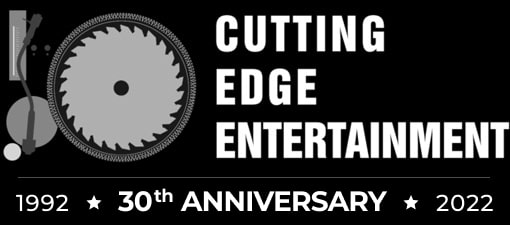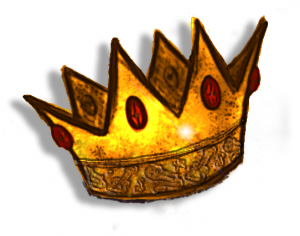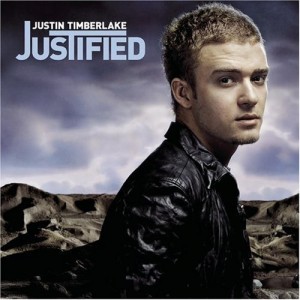Pop Royalty; A Continuing Case for Timberlake
This article is a direct response/expansion of the blog post titled:
“Who Is The Future Of Pop Royalty”
Often times, a topic comes along that speaks to you. Occasionally, a topic might come along that taps you on the shoulder, saying; “I’m here and you need to acknowledge me”. But every so often, a topic will come along that screams in your face, demanding your attention. Everything that follows here comes from a place much deeper than any play list or Billboard chart can ever understand, or decipher. Music, entertainment and its influence on its listeners/viewers, is a discussion – often it’s a debate – that cannot simply be “touched on”, it must be “shouted from the rooftops”.
The ebbs & flows of the entertainment industry have been well documented. This can include how a particular band has influenced a generation, or how a certain film might influence the way the future of movie making. It is as evident as ever; cinema is reaching back to 3D, a technology that was overused and eventually became somewhat of a joke in the motion picture industry (although recent technological advances have made it “better”, it’s likely they’ll still find a way to overuse it, making it mundane). It is my strong belief that it is the music industry that stands the most guilty of repeating its own history, both for better and for worse.
Music shows a unique ability to express and evoke emotion like no other art form, while it’s very interpretation varies from individual to individual. Naturally, this instance is most easily measured in the music that has the greatest reach… Pop music. This is when we can listen to a specific tune alongside a friend – who likely share many of the same interests and experiences you do – yet the perceived meanings can be completely different.
The concept of “Pop” music has changed throughout the years, especially as the dividing lines between genres continue to blur. In his blog entry, Craig lists the members of the “Pop Royalty” family- most significantly the “King of Pop” (Michael Jackson) and the “King of Rock & Roll” (Elvis Presley) – as a dying breed of entertainers; these are the people whose contributions will live on decades, even centuries after the passing of the artists from whom they were first conceived. Artists who are responsible for more than just songs and performances, but uniquely identifiable brands that will likely never be duplicated. The airwaves are controlled by forces that are beyond any fan, nor artist or producer; but instead they are dominated by “brand recognition” and “marketability”.
During the 1950s and 1960s many acts could only rely on radio airplay and live performances as the means for creating and spreading their popularity. The few acts who remain on the collective radar of the industry are the ones who were first to market. As a child I would ask my mother, “what made the Beatles and Elvis so popular?” She would try to enlighten me, however I still struggled to grasp the reasons for such a great magnitude of success. Throughout my career as a DJ, and as an avid fan of “happy-pop”, I think I’ve begun to figure it out (or at least scratch the surface). Even a few simple conversations with fans of each artist can broaden one’s understanding; sometimes even transforming you into a fan yourself. During one chat Craig said it best, “each artist was the first to market that material”. They were pioneers of an industry that has forgotten that music is more than just notes on a sheet and waves in the air, but as an artistic expression of emotion and sound. The originators of the genre created a fire that still burns bright, but that light is becoming harder to see. As record labels push out uninteresting, or “cookie-cutter” stars (Ke$ha for example) – mostly “single song musicians” – and spend countless millions damaging the images of those who make human mistakes (Britney Spears); I would have to agree with Craig’s article in that that there may be one artist, and only one artist, that can conquer the tabloids and become the next member of the Pop Royalty family.
That one artist…Justin Randall Timberlake.
Music fans –and many critics – will make the argument that the current generation of artists is incapable of producing a generation-gaping talent, and for the most part I would tend to agree with them. Try naming a few musicians that can write, produce and perform their own original material. Too often one person writes the lyrics, then someone else creates a catchy sound, and finally someone else blends each component together. Oh, then the person who actually “sings” those lyrics will receive all of the credit and shared reward that come along with a hit song. I am not trying to place judgment or undermine the work of many hardworking and extremely talented people; I know one music producer who creates the sounds that rival those of Justin’s right-hand man, Timbaland. If you’ve read my bio on the Cutting Edge website you’ll know that I consider Michael Jackson’s “Billie Jean” to be the quintessential pop song, but even that classic track has more to do with Quincy Jones’ ability to blend R&B dance with a rock and roll edge.
In the beginning Justin was simply one-of-five, a recreation of a fad that reoccurs every 10-15 years. The first incarnations of “boy-bands”, as they have been unceremoniously named, began generations before the most recent rebirth in 1998. However, before they were looked down upon they were the kings of their time. What makes the Beatles, the Monkees and the Jacksons – the templates of the modern day boy band – so much different from *NSYNC and the Backstreet Boys? Or even earlier bands like New Edition, Menudo or the New Kids On The Block? The more recent acts receive ridicule from music “experts” and receive little acceptance among their peers. The older members of the family, however, receive praise that has spanned – in some cases – over half a century. Even the racial differences between each group has created a dividing line between how these acts are interpreted. In 2004, American Idol’s Simon Cowell stated “[Justin Timberlake] is just some white kid who’s tried to act black over the last several years”.
When Timberlake burst on the scene as a member of *NSYNC, he was quickly labeled as the “sex symbol” of the group, with which most fans would likely agree. Unlike many of his predecessors, Justin had something else hiding behind the died-blond curls and the falsetto. Could anyone really predict that the sixteen year old kid crooning sweet somethings would become one of the world’s biggest stars? From 1998 through 2002, the music scene experienced that tried-and-true formula of the boy band, except one was destined to outshine the others. During that period, *NSYNC was actually the second act to make an appearance, shortly following their predecessor, the Backstreet Boys. Both acts were founded by the same manager and were placed on the same path to success. Both used similar tricks to attract fans and utilized the same style of music, almost. That is the beginning and the end of the comparisons; whether it was personal drive or just acceptance by the general public, *NSYNC rose above the pack and became the vehicle in which each member was able to achieve some level of stardom.
Yet Timberlake was hard at work all the while, plotting out his own longevity. There were the solo songs while still part of the group, the guest spots on songs of other artists and the small acting roles on television and motion pictures. The groundwork had been laid right before our eyes, however, it did not get off to the epic start that most pundits had expected. First was his solo performance at the 2002 MTV Video Music Awards, which critics called a Michael Jackson rip off. Next, his tour alongside Christina Aguilera received mediocre reviews, and most notably the infamous “malfunction” at the Super Bowl in February of 2004. Yet none of this hampered his upward trajectory, nor tarnished his seemingly impenetrable image.
In reality, it’s been nothing but smooth sailing since the backlash from “Nipplegate” finally settled down, and he has more than solidified his superstar status. He made us laugh –almost “pee-worthy” laughs- on Saturday Night Live and rocked the world on HBO. He continues to work and invent in every aspect of entertainment, but what will he do next? He has stated his goals of backing off music and focusing on movies – much to the dismay of this blog post’s writer. Although I’m sure he will succeed in whatever course he chooses, one question remains… How will we view his legacy when he calls it quits? Is Justin Timberlake the next member of Pop’s royal family, or is he just another shooting star?
Only time will tell….
-Brian
To learn more about DJ Brian, click here:
DJ Brian: Full Circle
Pop Music Crown Image by Sean Gallo – Sean Gallo Designs


